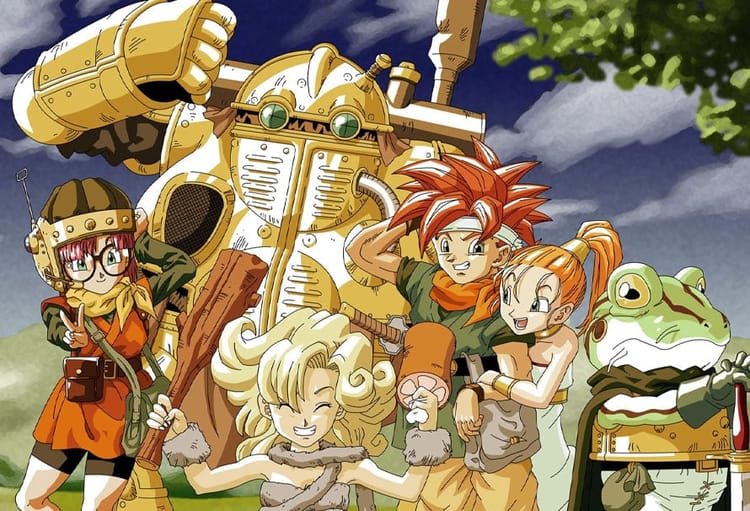Angry Robot and Angry Writers

Publisher Eleanor Teasdale on the use of AI tools: "We consider editorial eyes, authors and artists creations to be invaluable and important work that should be done by humans for humans."
Yesterday, UK-based genre publisher Angry Robot drew the ire of the writing community when they revealed an open submission period—where writers could submit their books without an agent. These open submission periods are exciting for a lot of writers, and an unusual move for a relatively big publisher, with most of the industry being closed off to any writers who aren't represented by an agent.
Controversy arose, however, when the fine print for the open submission period revealed Angry Robot would be using an AI-driven application called Storywise to help sort submissions and deliver them to appropriate editorial staff. Despite recognizing the potential blowback resulting from the use of an AI tool, and preemptively developing an extensive FAQ explaining its use, Angry Robot met with a lot of Angry Writers. Five hours later they announced they would no longer be using Storywise and would revert to a more traditional email inbox-process.
After covering the announcement, I reached out to Angry Robot for comment. Publisher Eleanor Teasdale responded, explaining to me that they were no longer planning to use Storywise for submissions. Teasdale also restated that Angry Robot's usecase for Storywise did not include any qualitative assessment—declaring whether the story was "good" or "bad"—but were using it to help in sorting submissions. (This was also explained in the FAQ.)
"Every submission was still going to be assessed and read by the team," Teasdale told me. "The aim of the software was to help us more quickly send each submission to the right acquiring editor," and to flag any potential quantitative metrics that didn't meet submissions guidelines—like word count, genre, etc. But even submissions flagged by the system would've been reviewed by human eyes, Teasdale said. "It's very important to note that all [manuscripts] would still have been opened and looked at for confirmation."
I asked Teasdale whether the editorial and leadership teams would be comfortable accepting AI evaluations of their work.
"We wouldn’t" she said, emphatically. "As with creative output we think work output, especially creative work, is reliant on human creativity." Teasdale explained that their primary method of collecting feedback is "first and foremost" their community of readers. "Which is what we have done here."
Teasdale confirmed Angry Robot has no plans for using AI-assisted tools in the future, coming out firmly against any generative AI tools that might infringe on the rights of their authors. "We do not use AI generated art for covers or engage with feeding anything into an engine or use AI generated (often stolen) work," she explained. Their goal in using Storywise was to help their editorial staff respond to submissions in a timely and respectful manner—which they haven't been able to do in previous open submission periods.
"In recent years our response time on open submissions has gotten out of hand," Teasdale said. This led to situations where Angry Robot's editors had to release a blanket policy that not receiving a response after a set period of time was considered a pass. "We were hoping this would allow us to respond far faster to authors who submitted."
It's important to note that Angry Robot is one of the few large-ish publishing imprints that accepts un-agented manuscripts, and, as we've seen in the short fiction market, the rise of AI-generated stories has created a flood of submissions that are nearly impossible to handle via legacy workflows and traditional slush piles.
"This system would have flagged potential AI-created submissions for a human eye to consider fully," Teasdale explained. "The community has seen the pile of generative AI manuscripts during open submissions making it very hard to assess an inbox in a reasonable time frame."
In February, 2023, Clarkesworld publisher and editor Neil Clarke spoke with NPR about the rising tide of AI-generated stories and its impact on his decision to close submissions after receiving hundreds of machine-generated stories. Clarke estimated that of the 1,100 stories the magazine had received through its submissions portal that month, 400 were machine generated.
"It was increasing at such a rate that we figured that by the end of the month, we would have double the number of submissions we normally have," Clarke explained to NPR. "And that the rate it had been growing from previous months, we were concerned that we had to do something to stop it."
"The thing is that science fiction is quite often cautionary, and, you know, we don't embrace technology just because it exists," Clarke said. "We want to make sure that we're using it right."
The "generative" AI used to produce these problematic stories relies on vast data models created by feeding the AI existing content and training it how to produce results that most closely match the user query. The use of generative AI is a non-starter for many artists for its tendency to take jobs away from humans and leverage unethical data models that fed content without the consent of the rights holder/creator.
Teasdale stressed the difference between generative AI and the non-generative AI used by Storywise. "It's important to be precise." Anyone who uses a word processor like Microsoft Word or spam filters through an online email client like Gmail are already making use of AI tools every day, she explained. "So I can't stand here in good faith and tell you we don't use those because they're common practice. What I can stand here and say is that we consider editorial eyes, authors and artists creations to be invaluable and important work that should be done by humans for humans and we have no plans to use generative AI or replace any jobs or paid work with AI."
According to Storywise's website, their model consists of data from three sources:
- publicly available information on the internet,
- licensed data from third parties, and
- data provided by their users and human trainers that our users or human trainers provide.
They assure writers that all generative content created from submissions (citing a longlines and synopses as examples) are excluded from all current and future datasets. They also indicate that submitted manuscripts are retained "for a period" for the purposes of accuracy/quality of results before eventually being discarded.
However, the second bullet point indicating Storywise uses third party datasets raises concerns about the ethical nature of the models used in their results. Since Storywise does not list these sources, it's impossible to discern whether their models use 100% ethically sourced data. Since even the biggest AI creators are already running out of data to train their models—most of it gathered unethically—it's highly likely that Storywise relies of large datasets containing data that was not consensually provided for training manuscript evaluation software.
Teasdale is keenly aware of the existential risk AI poses to writers and the traditional publishing industry.
"We are in the business of publishing books for human readers, and as curators of that would never want to outsource this to AI," she said. "We wanted to use [Storywise] to allow us, as editors, to avoid duplicate reading and to identify out-of-scope submissions."
At a time when labour rights are under attack and the publishing industry is plagued by under resourced and overworked editors, change is a wrecking ball. The old ways are gone, and, as Clarke and Teasdale demonstrated, the growing volume of submissions through traditional channels is already untenable. In 2022, Publishers Weekly reported on massive profit growth for the world's biggest publishers—but until they're are willing to take a haircut on profits to properly resource their imprints with properly sized and compensated editorial staffs, the systems will continue to buckle.
Teasdale isn't sure what's next for Angry Robot and their open submission period. She wants to keep the open submissions periods, but needs to find a way to do so "without overworking the team."
"With the best will in the world," she said, "these out-of-scope submissions come in and whilst we still consider opening the curtain to publishing and submissions to be vital, we're trying to navigate how to do so."
Support
There are lots of ways to support Astrolabe and my other work. Check ‘em out!
Keep In Touch
Enjoy Astrolabe? Want more SFF and retro gaming goodies? You can find me on Twitter and my website.
Credits
Astrolabe banner photo by Shot by Cerqueira on Unsplash





Member discussion